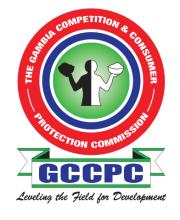Resource information
The Real Estate Industry is a key sector in the socio-economic development of The Gambia,
and the sector has been rapidly growing in the past decade with over 1oo real estate
companies operating in the Gambia (AREC 2020). The industry is under the purview of the
Ministry of Lands and Local Government; however, it is not regulated by Government; which
has led to consumers being vulnerable to various types of unfair, misleading and deceptive
market practices by stakeholders in the transaction process.
The Commission is empowered by Section 16 (1) (j) of the Consumer Protection Act 2014 to
carry out research on consumer protection issues in each sector of the economy in The
Gambia. The lack regulation and consumer protection violations necessitated the need for
the Commission to carry out a research in the sector. The primary purpose of the research
was to enable the Commission to have an in-depth knowledge of the real estate industry
and assess the state of consumer welfare, in order to be able to devise strategies that will
better protect consumers and also advise Government in respect of consumer welfare
issues in the industry.
The study was informed through information from different players involved in the land or
property transaction process of the real estate industry. On the part of Government, the
Ministry of Lands and Local Government, Department of Physical Planning, Alkalos and the
Brikama Area Council were interviewed. AREC and real estate companies were interviewed
on the part of the private sector. Consumers were also interviewed to identify consumer
protection issues they face.
The study found out various consumer protection issues occurring in the industry i.e.
consumer’s difficulty in getting access to their ownership of title documents or property
after finalizing payments, false and misleading advertisements, inadequate disclosure and
high penalties for consumers opting out of services, to name a few.
In light of these findings, the Commission with the power invested on it by the Consumer
Protection Act 2014, recommends for the sector to be assigned a regulator, the stakeholders
in the transaction process to be adequately trained and held accountable for their actions,
and the introduction of a digital real-time land ownership database.
The Ministry of Lands and Local Government is urged to ensure that the sector is stringently
regulated in order to make the industry consumer oriented, economically vibrant and
financially beneficial to the stakeholders.

